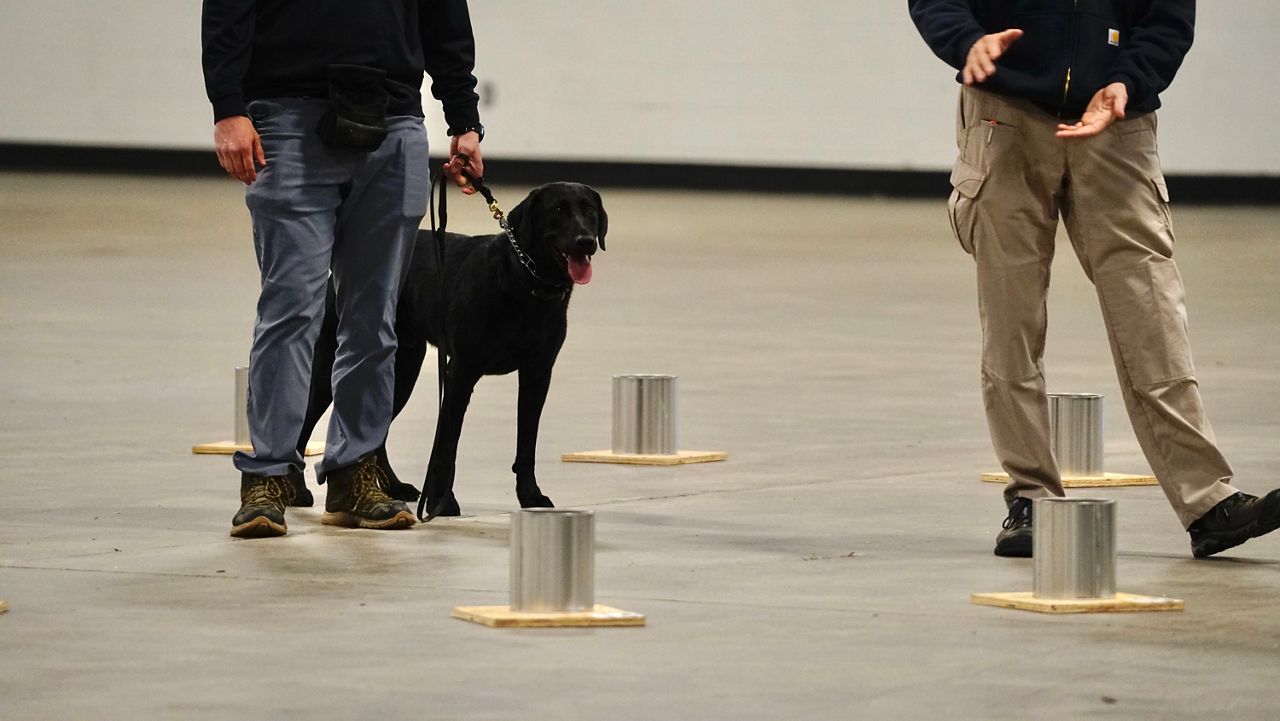FRANKFORT, Ky. — Some new laws from the 2021 Kentucky General Assembly take effect Tuesday.
What You Need To Know
- Many new Kentucky laws take effect Tuesday
- That’s because Tuesday marks 90 days since the legislature adjourned
- A new law will make some 2020 election procedures permanent
- Another new law will change the way vacancies are filled for a U.S. Senator from Kentucky
The Kentucky Constitution dictates new laws take effect 90 days after the legislature adjourns unless specified otherwise. This year, the session ended on March 30, making June 29 90 days after adjournment.
Adoptive parental leave
House Bill 210, which goes into effect Tuesday, will require employers who give birth parents maternity leave to give adoptive parents the same amount of time off. Spectrum News 1 spoke with an adoptive mother who helped advocate for this change.
Asthma
Senate Bill 127 encourages Kentucky schools to keep bronchodilator rescue inhalers in at least two locations. Spectrum News 1 caught up with a parent of a child with asthma, and a doctor about what this change could mean.
Child and new mother fatalities
House Bill 212 will require data in an annual state report on fatalities among children and new mothers to include information on demographics, race, income and geography associated with fatalities.
Child protection
House Bill 254 will raise the penalty for possessing or viewing a sexual performance by a minor under the age of 12 as a Class C felony.
Child support
House Bill 402 will revise child support laws to increase the amount considered flagrant nonsupport from $1,000 to $5,000.
Education
House Bill 563, known as the school choice bill, requires public school districts to accept students from another district, as long as they are not at capacity. It also creates a tax credit for people who donate to what is called an education opportunity account. These are run by private groups that provide grants for families to pay for school expenses.
Election reform
House Bill 574 makes some of the election procedures implemented during the pandemic permanent. The bipartisan measure means Kentuckians will have three days leading up to an election day, including a Saturday, for early in-person voting.
It will also allow county clerks to continue having drop boxes for those who do not wish to send their ballots back by mail. This will also allow counties to have voting supercenters, where any registered voter in the county can go to cast a ballot.
Ethics
Senate Bill 6 will create standards for ethical conduct for transition team members of all newly elected statewide officeholders. That will include identifying team members who have been lobbyists. It also requires disclosure of current employment, board member appointments and any non-state sources of money received for their services.
Illegal dumping
Senate Bill 86 designates 100% of a new open dumping fine to be paid to the county where the violation happened.
Inmate care
Senate Bill 84 bans jails, penitentiaries, local and state correctional facilities, residential centers and reentry centers from placing inmates who are pregnant or within the immediate postpartum period in restrictive housing, administrative segregation or solitary confinement.
Kentucky-grown products
Senate Bill 102 will include Asian Carp, paddlefish or sturgeon into the definition of a Kentucky-grown agricultural product.
Late fees
House Bill 272 allows water districts to impose a 10% late fee and cut off service for customers who fail to pay their bills. Those who receive financial assistance for bills are exempt.
Livestock
House Bill 229 makes someone guilty of criminal mischief for intentionally or wantonly causing damage to livestock.
Living organ donors
House Bill 75 will prohibit certain insurance coverage determinations based upon the status of someone as a living organ donor. It also encourages the Cabinet for Health and Family Services to develop educational materials related to living organ donation.
Medicaid
Senate Bill 55 prohibits copays for Medicaid beneficiaries.
Newborn safety
House Bill 155 allows the use of a newborn safety device when a newborn is being anonymously surrendered by a parent at participating police stations, fire departments or hospitals. If a parent surrenders an infant into one of those receptacles, it triggers an alarm once the newborn is placed inside. First responders can then immediately respond, providing care to the child.
Police standards
Senate Bill 80 expands the list of offenses that can get an officers’ certification revoked by expanding the list of acts considered to be professional wrongdoing. It also requires an officer to intervene when another officer uses unlawful excessive force.
Public records
House Bill 312 revises the state’s open records laws, limiting the ability of people who do not live, work or conduct business in Kentucky from obtaining records through open records laws. These restrictions do not apply to out-of-state journalists.
Sexual abuse
Senate Bill 52 closes what some called a law enforcement loophole related to sexual offenses by law enforcement officers. It clarifies it is illegal for an officer serving in an official capacity to have sex with or sexually abuse someone they have in custody.
Theft
House Bill 126 increases the threshold of felony theft from $500 to $1,000. It also allows law enforcement to charge members or organized shoplifting rings with a felony if someone steals a total of $1,000 worth of merchandise over 90 days.
U.S. senators
Senate Bill 228 changes the process of naming a new U.S. senator from Kentucky if one leaves office early. The governor would have to pick from a list of names from the outgoing senator’s political party. Gov. Andy Beshear vetoed this, but it was overturned.
Worker safety regulations
House Bill 475 will prohibit the Kentucky Occupational Safety and Health Standards Board from adopting or enforcing occupational safety and health administrative regulations that are more stringent than the corresponding federal provisions. This takes effect July 1.










